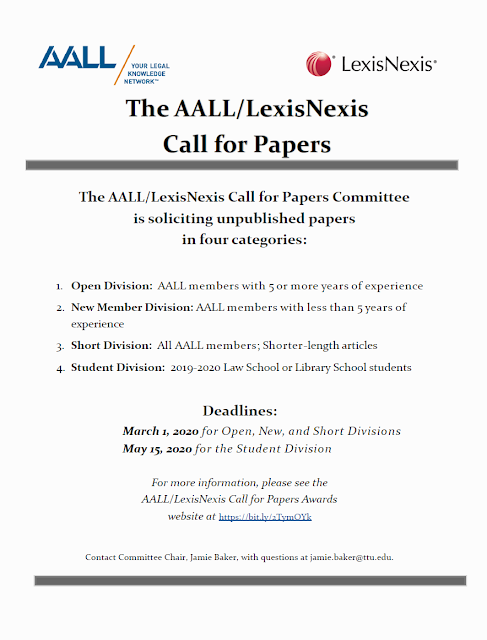Publishers Propose Costly Injunction in Year 8 of Georgia State Copyright Case
The Chronicle of Higher Education posted commentary about the ongoing Georgia State Case.
A short overview of the long history of the lawsuit is as follows:
The lawsuit, now in its eighth year, challenged GSU’s policy that allowed faculty members to upload excerpts (mainly chapters) of in-copyright books for students to read and download from online course repositories. Four years ago, a trial court held that 70 of the 75 challenged uses were fair uses. Two years ago, an appellate court sent the case back for a reassessment under a revised fair-use standard. The trial court has just recently ruled that of the 48 claims remaining in the case, only four uses, each involving multiple chapters, infringed.
In the recent trial court ruling, Sage was the only publisher that prevailed at all, and it lost more infringement claims than it won. Cambridge and Oxford came away empty-handed.
Given that Georgia State is considered to be the prevailing party in the suit, it's just a tad surprising that all three publishers have asked the court for a permanent injunction that would impose many new duties on GSU and require close monitoring of all faculty uploads to online course repositories.
Under the proposed injunction, colleges and individual faculty would have to:
This would apply not just to Sage publications, but to every use of in-copyright books on online course websites. If the injunction is granted, it would also set precedent for all other universities to follow.
As noted, the proposed injunction contrasts with the trial court’s 2012 injunction, which directed GSU to change its copyright policy to conform with the court’s order about what uses were fair and unfair, and to tell the faculty about the changed policy. The court wisely declined to impose burdensome and expensive record-keeping obligations on the university when first asked to do so. The requirements would be too onerous and costly for colleges, given that such a small percentage of uses were found to infringe on copyright.
While a narrow injunction is expected, it is a near certainty that the publishers will appeal, and the case will inch closer to year 10.
A short overview of the long history of the lawsuit is as follows:
The lawsuit, now in its eighth year, challenged GSU’s policy that allowed faculty members to upload excerpts (mainly chapters) of in-copyright books for students to read and download from online course repositories. Four years ago, a trial court held that 70 of the 75 challenged uses were fair uses. Two years ago, an appellate court sent the case back for a reassessment under a revised fair-use standard. The trial court has just recently ruled that of the 48 claims remaining in the case, only four uses, each involving multiple chapters, infringed.
In the recent trial court ruling, Sage was the only publisher that prevailed at all, and it lost more infringement claims than it won. Cambridge and Oxford came away empty-handed.
Given that Georgia State is considered to be the prevailing party in the suit, it's just a tad surprising that all three publishers have asked the court for a permanent injunction that would impose many new duties on GSU and require close monitoring of all faculty uploads to online course repositories.
Under the proposed injunction, colleges and individual faculty would have to:
- Determine whether digital licenses were available for excerpts they wanted to use.
- If so, faculty would have to decide whether to license that material or determine that uploading parts of in-copyright books would be fair use.
- Faculty members would have to assess whether their uses of the relevant materials were narrowly tailored to serve their pedagogical purposes, were not excessive in quantity, and were not the "heart" of the book.
- And faculty members would have to consider how much harm their use would cause to the publisher if other faculty members teaching similar courses made the same uses of the book chapter.
- The proposed injunction would also require university personnel to confirm that every excerpt uploaded to course websites met the fair-use criteria and to keep track of information about the book, which parts were used, the number of total pages, the sources that were consulted to determine whether digital permissions were available, the date of the investigation, the number of students enrolled in the course, and the name of the professor.
- The university would have to maintain those records for three years.
- The publishers want the court to require GSU to provide them with access to the university’s online course system and to relevant records so the publishers could confirm that the university had complied with the record-keeping and monitoring obligations.
This would apply not just to Sage publications, but to every use of in-copyright books on online course websites. If the injunction is granted, it would also set precedent for all other universities to follow.
As noted, the proposed injunction contrasts with the trial court’s 2012 injunction, which directed GSU to change its copyright policy to conform with the court’s order about what uses were fair and unfair, and to tell the faculty about the changed policy. The court wisely declined to impose burdensome and expensive record-keeping obligations on the university when first asked to do so. The requirements would be too onerous and costly for colleges, given that such a small percentage of uses were found to infringe on copyright.
While a narrow injunction is expected, it is a near certainty that the publishers will appeal, and the case will inch closer to year 10.


Comments
Post a Comment